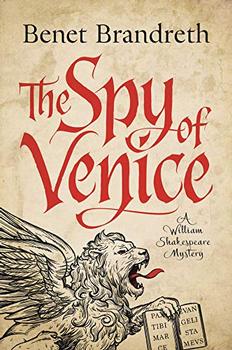Summary | Excerpt | Reviews | Beyond the book | Read-Alikes | Genres & Themes | Author Bio

Plague Land is an entertaining whodunit set in Kent in the aftermath of the bubonic plague. S. D. Sykes envisions 1350 England as a society with a serious personnel shortage. "The Great Mortality" (see "Beyond the Book)" has already carried off half the population, leaving huge gaps in the social order. Chaos and paranoia are threatening to seep in.
When a girl called Alison Starvecrow turns up dead in the woods near the village of Somershill, there is no official coroner or constable left to investigate the crime. The new priest in town, a "humorless clenched-fist of a man" named John of Cornwall, dumps the problem on the doorstep of the local squire. "We must each suffer new burdens since the ravages of the Plague," he tells the reluctant Lord of the Manor. Having lost his father and older brothers to the epidemic, Lord Oswald de Lacy is a seventeen year-old lad who has unexpectedly found himself standing in as head of his family. He's still getting used to the job, and inwardly wonders whether looking into the death of a village girl can possibly be his responsibility. "But if not me," he asks himself, "then who else would take on this unwelcome duty?" With a dash of the noble urge to do the decent thing, and an equal dollop of clueless naiveté, Oswald sallies forth to do a bit of amateur detecting.
The young Oswald is no Sherlock Holmes, but he does have a few advantages as he wades in to the task of deciphering what happened to poor Alison. He's had a bit of an education. Raised in a monastery under the tutelage of an alcoholic monk-medic, Brother Peter, Oswald has a passing acquaintance with the principles of science. He reads. And at a moment in history when superstition and mysticism are surging, as a scared population tries to keep infection at bay, Oswald is himself a skeptic. The fear-mongering, fanatical priest Cornwall, wants the villagers to believe the murder is the work of demonic dog-headed monsters. But Oswald alone is able to resist mass hysteria. He raises his eyebrow and suggests the monster theory "sounds unlikely."
Oswald is an appealing narrator. He maintains a kindly, bemused detachment from his annoying mother and sister, even while bumbling into situations over his head as the murder investigation proceeds. He is endearingly humble and self-aware. When he sees a pretty girl and begins to translate her name from Latin, he immediately sees how foolish he sounds. Sykes' comic timing gives the writing a lightness of tone that comes as a surprise in a plague-era novel. There are elements in Oswald's "hail-fellow-well-met" demeanor that begin to seem familiar from other corners of English literature – I realized a few chapters in, that he reminded me of a Middle Ages Bertie Wooster. And in the figure of his mentor Brother Peter, Oswald even has a Jeeves of his own to help him out of scrapes.
Part of the pleasure in a historical mystery, of course, comes from the ambience of the time and place, and Oswald is a lyrical observer of the local color of his world, whether he's waxing poetic about the bucolic landscape ("the rain gave way to a fan of sunlight") or the texture of a plague pit ("creaking and bony mattress of death"). Sykes gives us plenty of medieval terminology to enjoy, including litanies of lovely-sounding archaic herbs with aromatic and medical uses. The scenery is richly imagined too – the manor houses and village hovels alike have seen better days.
As pleasurable as Sykes' sense of the comic is, it feels at times as though the light tone of the narrative undermines the weight of the sinister events unfolding. The nefarious characters are at risk of seeming more like caricatures than actual threats, and the suspense is more tickling than spine-tingling. Still, the mystery is a pleasure to follow, and unlike the perpetually daffy Bertie Wooster, Oswald shows signs of growing older and wiser. A sense of humor in a squire, as in a novel, can lead to insight – the fruits of which we are sure to see more of in future installments of Oswald de Lacy mysteries. A sequel, The Butcher Bird, is also released.
![]() This review was originally published in The BookBrowse Review in March 2015, and has been updated for the
April 2016 edition.
Click here to go to this issue.
This review was originally published in The BookBrowse Review in March 2015, and has been updated for the
April 2016 edition.
Click here to go to this issue.

If you liked Plague Land, try these:

by Benet Brandreth
Published 2019
Shakespeare in Love meets C. J. Sansom in a historical thriller with a swashbuckling twist - and a hero as you've never seen him before.

by Conn Iggulden
Published 2019
From New York Times bestselling Conn Iggulden comes a new novel set in the red-blooded days of Anglo-Saxon England. This is the original game for the English throne.
Your guide toexceptional books
BookBrowse seeks out and recommends the best in contemporary fiction and nonfiction—books that not only engage and entertain but also deepen our understanding of ourselves and the world around us.